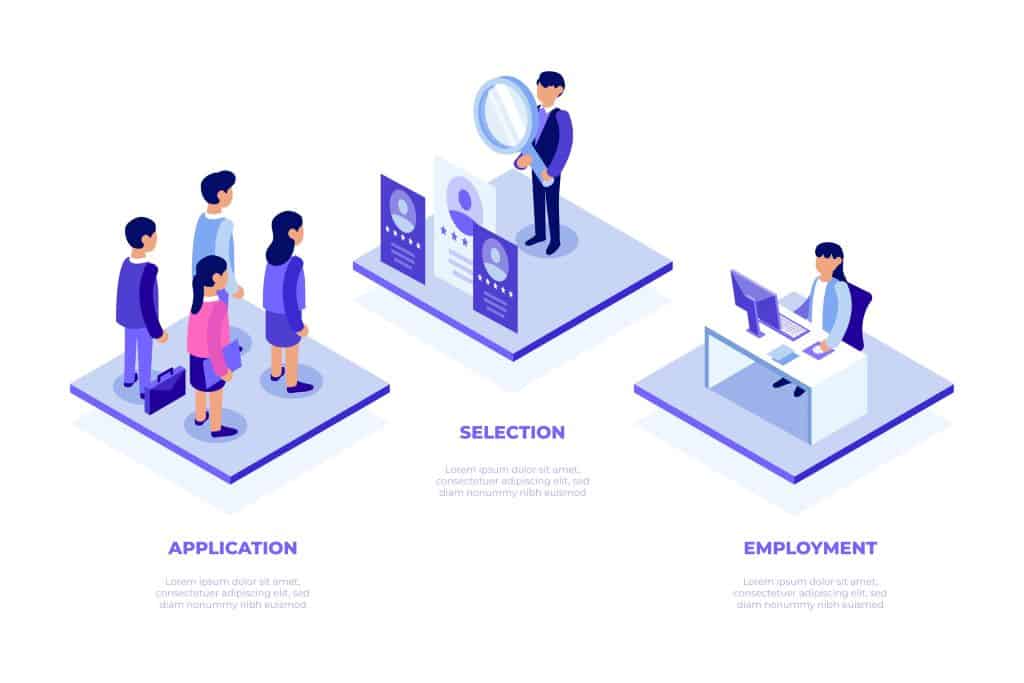Introduction to Remote Staffing Services
There has been an uptrend in Remote Staffing in the last few years, but it received a massive boost the previous year due to COVID. Thus, what was an option earlier now became a necessity. Some companies have even decided to have 100% of their employees working remotely. Numerous studies have stated that 35-40 % of all jobs can be done remotely. Nonetheless, many organizations that scrutinized the concept are now welcoming it.
For some organizations, remote staffing is a short-term solution. Others have discovered that the profits far exceed the difficulties and may result in a permanent remote workforce. No matter which category your business falls into, it is vital to understand the basics of running a virtual team before making the change.
What is Remote Staffing Service?
Before we go ahead, we need to be clear about the definition of remote staff. Remote staffing means having a team of remote employees. Anyone who works for an organization outside a traditional office environment is a remote employee. But remote work goes beyond location as it enables workers to choose their working hours at least to some extent and provide their jobs around other responsibilities, such as family life and education.
Why Remote Staffing Service?
We live in a gig economy, and it is good news for fast-growing businesses that want to penetrate on-demand, cost-effective talent. In addition, many small companies search for more long-term, scalable solutions to extend their staff, like Remote Teams.
Remote staffing is an extension of your existing team and integrates your company culture and processes. They are helpful in repetitive data entry, customer support, reporting, data transcription, or data curation for machine learning roles. Once up and operating, you typically control remote teams as an extension of your in-office team.
Remote teams provide the reliability of an in-house team without high expenses. They fit into your business culture and formation by providing the reliability of an established team without the overheads associated with full-time employees. BRIDGENTECH Remote staffing services are easily scalable and allow for increased control over processes and communication.
Remote staffing benefits both Employers and employees:
How does a Company benefit from Remote Staffing?
- A Scalable Workforce
One of the biggest challenges businesses confront is scaling. It can be tough to find new employees with the skills you need when you are limited to people in your local area. In addition, every time you add a new member to your team, you need to make more space in the office and buy more equipment. With the Remote staff, there are nearly no limits to whom you can employ. Also, you can add members to your team much quicker. Small start-ups must become small businesses and any business that wants to extend.
- Greater Productivity
Companies are usually concerned that remote staff will be less productive than in-office staff. A home atmosphere can certainly be distracting, and there is NO low failure. Employees could use many of their work hours doing something other than work. Nevertheless, research has observed the opposite. The average remote employee works one and a half days more every month than an office-based employee. It adds up to an additional 16-17 days of work a year.
- Higher Engagement
Higher engagement is one of the main reasons for greater productivity from remote staff. They cherish the opportunity to fit other essentials around work and the opportunity to eliminate a time-wasting commute. All this reaches commitment to work and eventually a lower turnover.
What are the benefits of remote working for employees?
- Freedom and Flexibility:
Remote workers enjoy their freedom. They can organize their day to suit their work and home life, as long as they do the set hours at the appropriate time. Having the flexibility to visit medical appointments or take aging parents shopping can reduce the load. And not having to ask for proper approval or fit in with other team members takes the stress off, too. When a company allows employees this sort of liberty, it develops trust and gives more job content.
- Cost-saving:
Going to a job can be costly. You have got travel expenses, parking, lunch, beverage and snacks, occasional cakes, co-worker presents, outfits for work, and the list is unending. Some companies even give treats or apparel allowances as a perk. BRIDGENTECH Remote staffing services let you save these costs, which can add up to a large amount. It means more disposable earnings possible for other things, which is always a great thing.
- Save time:
As well as preserving time for commuting, having a remote job means employees maintain their schedules. Some people work great in the mornings than in the midday. And some become alive with thoughts in the evenings. As long as your work does not influence your co-workers and reach deadlines, you can work whenever you like.
- Location:
Another one of the advantage of working remotely for employees is that they can work from any place. People do not have to be bound to a particular city or building that does not match their standards or choice, which also benefits avoiding another trip. Remote working signifies that it does not matter if you remain at the top of a hill or next to the sea. As long as you have a stable internet connection, you can work from any place or location in the world.
- Peace:
A conventional office is often loud and distracting. Some people like to work in complete quiet to concentrate. Working remotely, especially from home, can provide creative thought and higher productivity.
- Work/life balance:
The strength to work remotely allows a better work/life balance. In addition, working remotely from the office can make you feel in command of your life and give you extra time to organize work and home tasks.
- Comfortable environment:
One of the benefits of remote working is that you can put up your workspace as you desire. As a result, you do not have to worry about co-workers complaining if you are dirty.
Why should companies go for a Remote Staffing Service?
- Savings on sources and overheads:
If you survive to spend more limited resources, it leaves you with more to develop as a business. Moreover, since the remote staff can sustain universally and everywhere, you can effortlessly hire your workers in a region with low salaries and inexpensive rents.
- No HR or payroll hassles:
Almost 99% of the time, you will either hire a remote workforce on a contract or engage them with a managing agency. Troubles like HR, and payroll will vanish. The only communication you have with your employees is related to work. It gets you more productive, more determined, and more devoted than your rivals.
- The best real estate is yours:
Now, this may seem a bit different, but if you have a bulk of your workforce working remotely, you do not need to provide an office place for them. So, all you require is sufficient space for yourself and your team, whom you might want on-site.
- The most skilled talent is now within the scope:
Now, this goes two ways. Firstly, hiring remote workers starts up the global talent market for you. There are skilled people globally, and the price of great talent varies in various markets. Hence, while you might strive to get top-notch talent nearby at Y price, you might obtain much talent overseas in countries like India, France, Germany, and many more.








